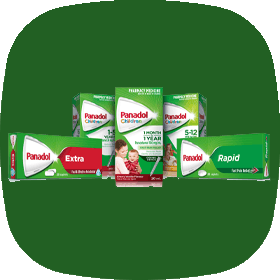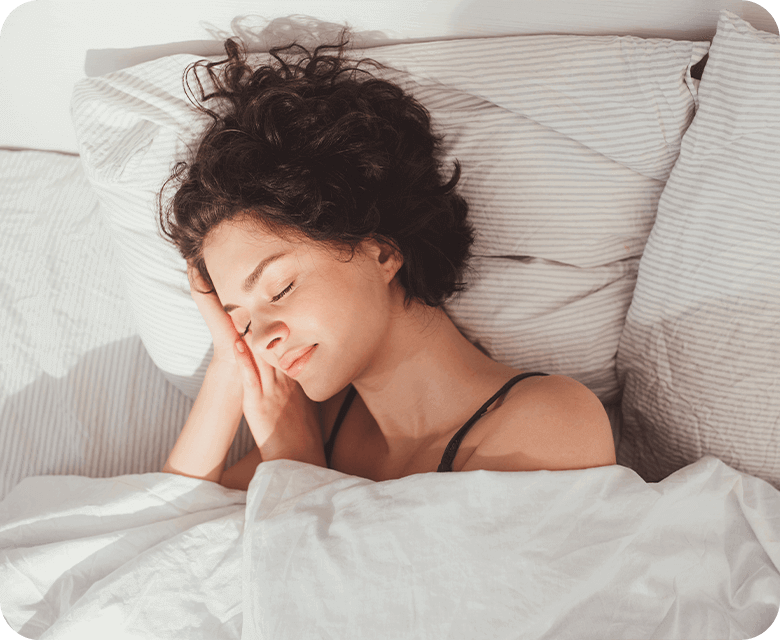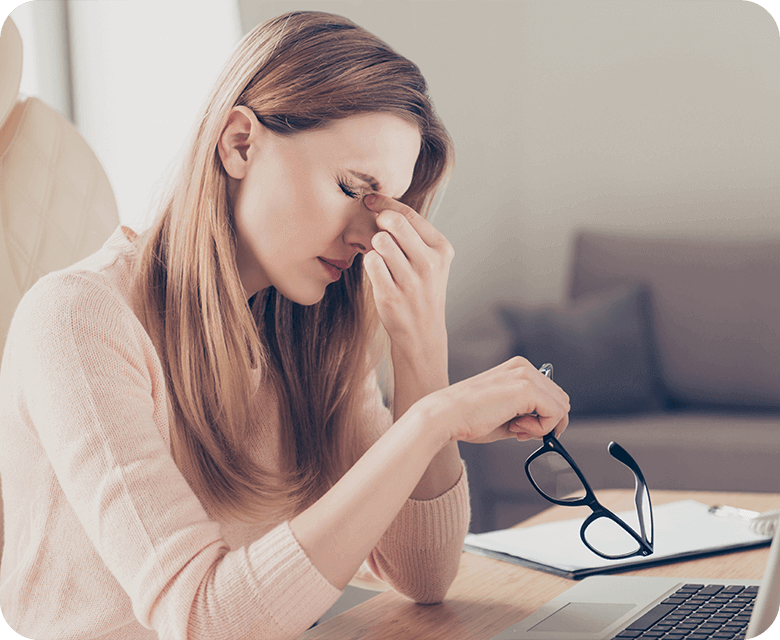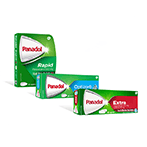Panadol Regular
Panadol Rapid
Panadol Extra
Panadol Osteo
Panadol Childrens - Liquid
Children’s Panadol Colourfree Liquid (1 Month – 1 Year)
Children’s Panadol Elixir (5 Years – 12 Years)
Panadol Childrens – Suspension
Children’s Panadol Colourfree Suspension (1 Year- 5 Years)
Children’s Panadol Colourfree Suspension (5 Years – 12 Years)
Panadol Childrens – Suppositories
Children’s Panadol Suppositories (6 Months – 5 Years)
Children’s Panadol Suppositories (5 Years – 12 Years)
Panadol Childrens – Chewable



Oh, that pain in your head! It can stop you in your tracks as headaches can be debilitating.
But what causes headaches and what can you do to help relieve them? Let’s find out.
Who gets headaches?
Headaches are very common. It has been estimated that almost half the number of adults worldwide have experienced a headache at least once in the past year.
There are many different types of headache, including the tension headache and cluster headache. But what causes headaches and what can you do to help manage them?

What are some of the symptoms of a headache?
Symptoms of a headache can vary depending on the type of headache you have. Most headaches will have some or all of these symptoms:
1. Pain in the head
2. Pain or discomfort in the neck
3. A tender scalp
They can be severe and last for many hours or come on quickly and disappear.
The signs of a headache depend on the type you’ve got, but usually include pain in the head.
What are other signs and symptoms of headaches?
There are many different types of headache. For example, migraines which tend to affect just one side of your head, or cluster headaches which can occur regularly over a certain period of time.
These are the most common types:
- Tension headache
- Cluster headache
- Migraine headaches.
Tension headache
The most common headache type is called tension type headache. It often feels like a tight band of pressure around your head.
Possible symptoms vary according to the cause and severity of your headache:
- Dull pressure-like pain
- Equal pain on both sides of your head
- Pain in the shoulders or neck muscles
The pain generally ranges from mild to moderate and can last anywhere from half an hour to a number of days.
Cluster headache
As the name suggests, cluster headaches come on in episodes which last between 15 minutes to three hours. Some people can get up to eight cluster headaches in a single day.
Cluster headache can feel much more severe than a tension headache. They are more likely to happen in men than in women but anyone can get them.
What causes headaches?
The exact cause of a headache can be difficult to pinpoint. Different types of headaches have different causes.
If you’re unsure of the cause of your headaches, seek medical advice.

Tension headaches can happen when muscles become tense in the head or neck. There are certain things that can trigger these contractions.
Cluster headaches are caused by a dilation or widening of the blood vessels, but researchers aren’t sure why this happens.
The most common triggers of different types of headache are:
Tension headache
- Stress (physical or emotional)
- Dental and jaw problems like clenching at night
- Eye strain (e.g. when sitting in front of the computer for prolonged periods of time)
- Smoking
- Alcohol
- Tea or coffee
- Overexertion
Cluster headache
- Alcohol
- Smoking
- Some medications
- High altitude
- Bright light
- Overexertion
- Heat

How to relieve a headache?
Once a migraine or tension headache starts, try treating it with suitable pain-relieving medicine.
Other methods of management you can try for mild-to-moderate headaches include:
- Rest and relax, or even try to sleep
- Apply a heat or cold pack against the painful area
Over-the-counter pain medication and home remedies may help you feel better, but it’s important to address the underlying cause to avoid recurring head pain. Always consult your doctor as a first step.
What relief can be used for a headache?
Over-the-counter medicines like paracetamol and ibuprofen may be useful if you have headaches less frequently than once every two weeks.
More frequent headaches, migraine and cluster headaches will need attention from a doctor to advise on treatment.

How can I stop headaches happening?
Headaches can be chronic. If you have such recurring headaches, it’s important to seek the care of a medical professional and to learn what triggers them and avoid these triggers in the future.
It could be worth keeping a 'headache diary' to help identify what's causing your headache. For example, if you notice that you get a tension headache after drinking caffeine try to abstain to monitor if it reduces the frequency of your headaches.
Making some lifestyle changes is often the first step to helping you to address chronic headaches. Stress, poor posture, eye strain, certain foods or drinks all tend to be factors that can trigger a chronic tension or cluster headache.
By addressing the underlying causes, you should be able to minimize the frequency of your headaches.
Depending on the type of headache, your doctor may be able to advise on preventative medication or alternative therapeutic strategies.








